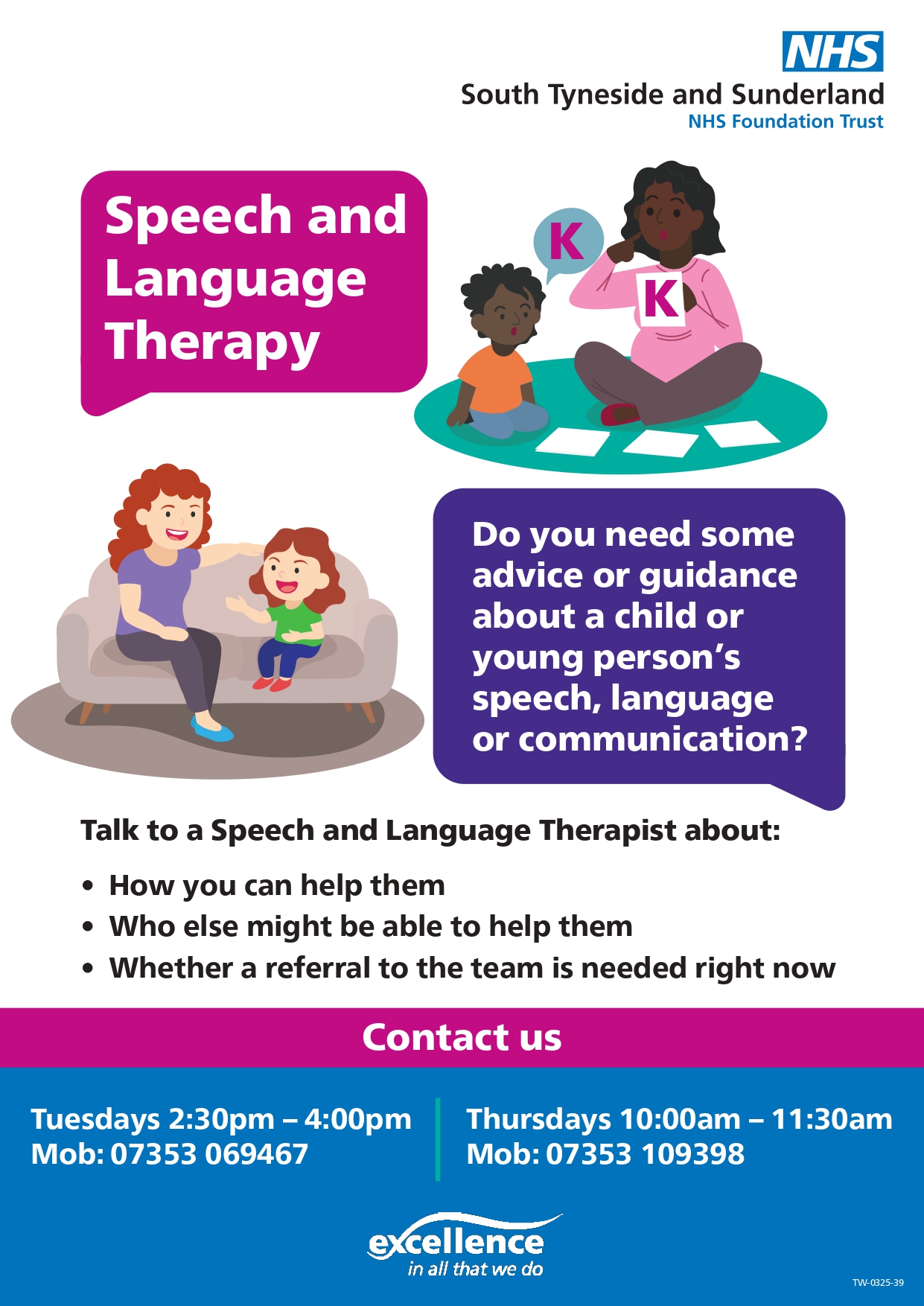Deciding whether to refer
For preschool children, your health visitor is an important first contact. They will discuss your concerns. They can provide practical advice and support. They can also help you decide whether a referral to speech and language therapy is right for your child.
For school-age children, it’s a good idea to discuss your concerns with your child’s teacher.
We accept referrals from parents, carers and health and education professionals.
Consider referring if:
- Your child’s speech, language or communication skills aren’t developing as expected. They may have also changed.
- These difficulties are having an impact on your child. You're worried this may cause problems in the future.
- Your child is becoming frustrated or unwell. They have low self-confidence or are struggling with aspects of daily life. This is because of their communication or feeding difficulties.
These referral guidelines (South Tyneside and Sunderland) will help you. They will assist your decision if a referral is right for your child.
They outline exactly when to consider referring. They cover each area (speech, language, stammering, etc.). You can find what’s typical for children of different ages and what difficulties may look like.
You are also welcome to contact our departments for advice before referring:
- South Tyneside - 0191 283 2484
- Sunderland - 0191 569 9122
Making a referral
Once you have decided that a referral is right for your child:
- Download the referral form for your area:
- Please post the form back to the department. Please see our contact details below.
- You can also contact your school and/or health visitor to discuss making a referral.
General referral tips
- Please give as much detail as you can
- Please be as clear as you can be about what you want from speech and language therapy
- We always need verbal or written consent from parents/carers. They need to be aware of the concerns in the referral
Tips for referring bilingual children
- Bilingual children are those who speak or hear any languages other than English at home
- If the child has issues communicating in all their languages then please refer. Don’t assume the child is only struggling to communicate because they’re bilingual
- Please make it clear what their specific language(s) / dialect(s) are in the referral form
- It is also helpful to include key information. This could be how long the child has lived in the UK or whether you need an interpreter. This could make discussions easier with parents/carers.
Tips for eating, drinking and swallowing referrals
- We prefer referrals from health professionals for eating, drinking and swallowing problems
- Before referral, find out as much as you can from the parent/carer about:
- When the problem started and relevant history
- Current feeding pattern. This could include textures/types of food/drink, amounts taken, how long the meal/feed takes
- Health especially history of chest infections
- Further information around any sensory sensitivities
- Further information about how they fed as a baby from the bottle/breast
- Observe the child having food/drink and look for the following:
- Sucking, biting, chewing skills – are they expected for age, delayed, or unusual?
- Is there coughing, choking, gagging, eye watering, loss of food from mouth?
- Are there breathing changes? This could be a wet/’rattily’ sound or voice changes during or after eating/drinking?
Tips for referring children who stammer
- All children who stammer / have bumpy talking should be referred for advice as soon as this is noticed. Please don’t ‘wait and see’
- It is common for bumpy talking to increase and decrease over time. So even if the bumps seem to have stopped, please still make a referral.








